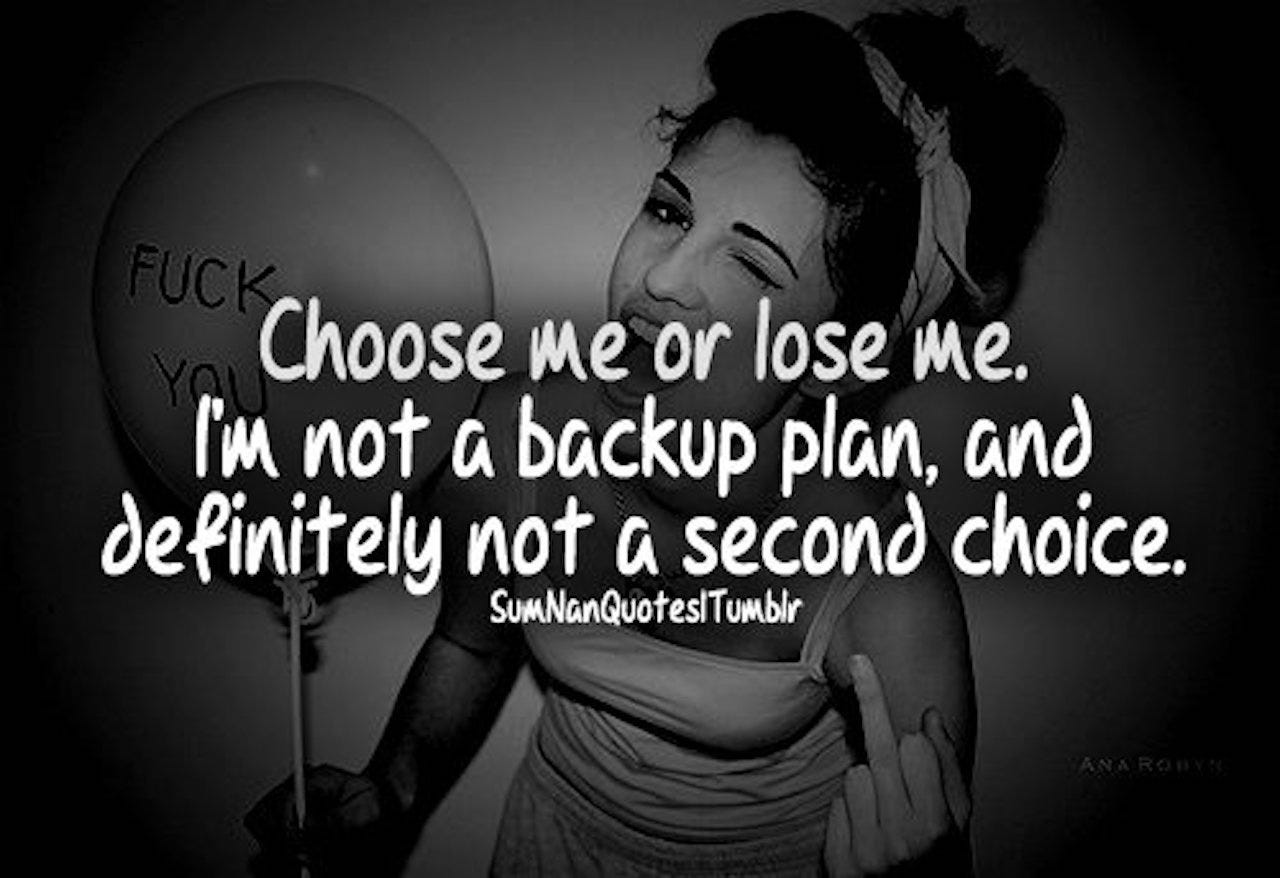Ranked Choice Voting Is the Wrong Choice
Ranked Choice Voting is…
An electoral system in which voters rank candidates by preference on their ballots.
If a candidate wins a majority of first-preference votes, he or she is declared the winner.
If no candidate wins a majority of first-preference votes, the candidate with the fewest first-preference votes is eliminated. First-preference votes cast for the failed candidate are eliminated, lifting the second-preference choices indicated on those ballots. A new tally is conducted to determine whether any candidate has won a majority of the adjusted votes.
The process is repeated until a candidate wins an outright majority.
I originally found RCV interesting because it has received bipartisan support from John McCain to Barrack Obama, but the more I researched about it the more I discovered just how bad it actually is…
Negative Campaigns
RCV lobbyists like FairVote.org claim candidates would be less likely to attack each other in order to rank higher as a voter’s secondary choice. Their literature is sparse despite RCV existing in various places for over a century.
In one study they highlight that during a debate candidates “were more likely to substitute negative or neutral words for positive words.” FairVote also looked at a variety of exit polls where voters felt the tone of the campaign was more positive.
Meh.
But let’s say for argument's sake candidates would be slightly less negative under an RCV system — that still doesn’t address the major driver of negative campaigning: outside organizations and pacs.
So under RCV candidates may try to distance themselves from political mudslinging, but in countries like Australia that have had Ranked-Choice Voting since 1918, negative campaigning is still very much a part of their culture…
Negative advertising is all over Australian elections. David Crowe, a columnist for The Australian, apparently didn’t get the word about his country’s gentle electioneering. He likened the scare tactics of this year’s federal campaign to those of 2010, another recent “display of pure political desperation.”
I’d argue, RCV may even lead to more negativity because third-party candidates are more likely to run in order to form a strategic alliance with a major party candidate so they can play “good cop, bad cop.” If you couple this with the fact that in a 2019 paper, San Francisco State University political scientist Jason McDaniel found RCV led to a “significant decrease in voter turnout of approximately 3-5 percentage points in RCV cities.” The “bad cop” could attack the opposition’s morality to decrease their turnout and the “good cop” could appeal to the middle with politeness and symbolic overtures. Such Machevillian strategies would just leave us back where we are in terms of negativity, except we’d have a more confusing race as a consequence.
Imagine if we had RCV in the 2020 presidential election. Trump and Biden would know they just need to rank higher than the other to win a vote since they’d inevitably be the two finalists in the “instant-run-off,” which means they’d have every incentive to go after each other just as hard as before! In fact, they’d be incentivized to be less substantive in their disagreement to rank as the second choice of third-party voters so rather than Trump attacking Biden on his socialist policies he’d be incentivized to exclusively attack his character as a “lying dog-faced pony soldier!” in order to appeal to Jill Stein voters.
And as a strategic move, Trump may want to ingratiate himself to someone like a Mitt Romney, Jeb Bush, or Kanye West who he could convince to run to drive moderates to the polls. Moderators may feel uncomfortable voting for Trump or Biden as their first choice, but okay with them as their second or third choice, especially if “the middle candidate” signals his support to either one.
It’s also important to note that negativity in itself isn’t necessarily bad. There’s a difference between superficial and substantive negativity. The point of an election is to hear candidates outline why their character, experience, and policies are preferable to their opponents. I don’t want to create a system where we incentivize candidates to be fake nice on camera, but then turn around and trash them “off the record” via affiliated individuals and groups. Ultimately, blurring disagreement isn’t going to help voters make a more informed vote.
Partisan Gridlock
According to FairVote, “If a voter's first choice is eliminated, their vote instantly goes to their second choice. That way, we can find out which of the top candidates has real majority support.” In their mind, the winning candidate would have more of a “mandate” to enact his agenda since he’d have “real majority support.”
But they’re basically saying the beauty of ranked-choice voting is you can vote for your favorite third-party choice first without having the guilt of feeling like you are throwing away your vote because guess what?! Your vote will be thrown away for you.
In 2010 the Australian Liberal-National Coalition got 43% of first-place votes, but they lost the House of Representatives to the Labor Party who got only 38% of first-place votes. This backwardness in the “land down under” only makes it harder for the ruling party to break through partisan gridlock because the majority party would have a more questionable mandate.
No one feels good as a backup plan.
In addition, RCV doesn’t lead to any real increase in third-party power. One of the two major Australian Parties always wins. In fact, RCV may lead to third parties having less influence over elections because your vote for a third-party candidate will effectively be thrown out for whichever major party candidate you ranked higher. This is, after all, why RCV was implemented in Australia. The conservative vote was being split between the ruling Nationalist Party and the Country Party so the Nationalist Party Prime Minister implemented RCV to maintain his control over Parliament.
From an American perspective, if RCV was implemented for presidential elections this may mean that George H.W. Bush might have won in 1992, Al Gore in 2000, and Hillary Clinton in 2016. Your vote belongs to the establishment now.
Of course, some voters may refuse to rank certain candidates, which leads to “ballot exhaustion.”
In a 2014 Electoral Studies paper, political scientists Craig Burnett and Vladimir Kogan analyzed four RCV local elections in California and Washington where they discovered that none of the four winners won a majority of votes cast. In other words, Ranked-Choice-Voting is institutional disenfranchisement.
In Australia not only is it mandatory that you vote, but it’s also mandatory via RCV that you vote for every single candidate. If you don’t rank a candidate then your ballot will be thrown out.
And at a time when trust in our democratic institutions is already low do we really want to implement a ballot system that could lead to “bizarre outcomes” as Columbia computer scientist Stephen Unger described RCV? Because depending on the order in which candidates are eliminated could affect who wins, “If all supporters of candidate A listed him first, he would lose in the second round—but if some of them strategically listed him third, he would win because a different candidate would be knocked out in the first round.”
Imagine what conspiracy theories would spring up from RCV.
Ultimately, whether such bizarre cases would occur frequently is less important than the effect this electoral system would have on voter confidence. In a 2017 Politics and Policy paper, political scientist Lindsay Nielson had volunteers do mock traditional and RCV elections and surveyed them about the experience. They were significantly less likely to say RCV was “fair” and she found, “weak support for the supposition that RCV rules could increase support for election winners.”
Incumbency Advantage
Whenever someone is trying to change the rules of a game you really have to ask why? Is it because they really care about creating a fair game, or is it because they‘re driven by a desire to give themselves a competitive edge?
Whatever the case, it’s clear that RCV benefits incumbents.
RCV benefits the candidates who belong to one of the two major parties (usually the incumbent), has the highest name recognition (usually the incumbent), the most money to break through the noise of a crowded field (usually the incumbent), and the most connections to build strategic alliances and use outside groups to do their mudslinging (usually the incumbent).
Political Complexity
In 2016, California Governor Jerry Brown Jr. (D) vetoed a bill to expand ranked-choice voting in his state saying it was “overly complicated and confusing” and “deprives voters of genuinely informed choice.”
Australian political parties hand out “How-to-Vote cards” to inform voters in what order to list candidates in order to maximize their party’s chances of victory…
Who doesn’t like overcomplicating things to avoid fixing the core problem?
The bottom line is from an electoral standpoint, we don’t need “instant run-off elections” when we can just do regular “run-off elections” whenever no candidate gets over 50% of the vote.
Will it cost a bit more money? Yes, but this is one of the few areas where conservatives and liberals can agree it’s worth it to insure the will of the voting majority is actually heard.
But no matter how we structure the vote, tweaks to our electoral system will not close our growing ideological divide.
To truly reduce negative campaigning and partisan gridlock we need to Make the Middle Class Great Again.
The most perfect political community is one in which the middle class is in control, and outnumbers both of the other classes. — Aristotle
The middle class is the backbone of our republic.
Voters primarily vote based on their perceived short-term self-interest. If you are effectively paying nothing in taxes then why not vote to give yourself more?
But then as soon as you’re forced to pay 40% of your income for things that actively harm the people it claims to help then at that moment you transform into Rational Man…
The only way our political system works is if the true operational cost of our government primarily falls on the people voting for it because then voters are incentivized to think more rationally about government spending.
If we rebuilt the middle class by making America a nation of readers, owners, and families again then money and political power would increasingly flow back to the middle.
By reducing economic and political inequality we’d see a more united and positive America as both major parties would rank the American middle class as their #1 choice again.








